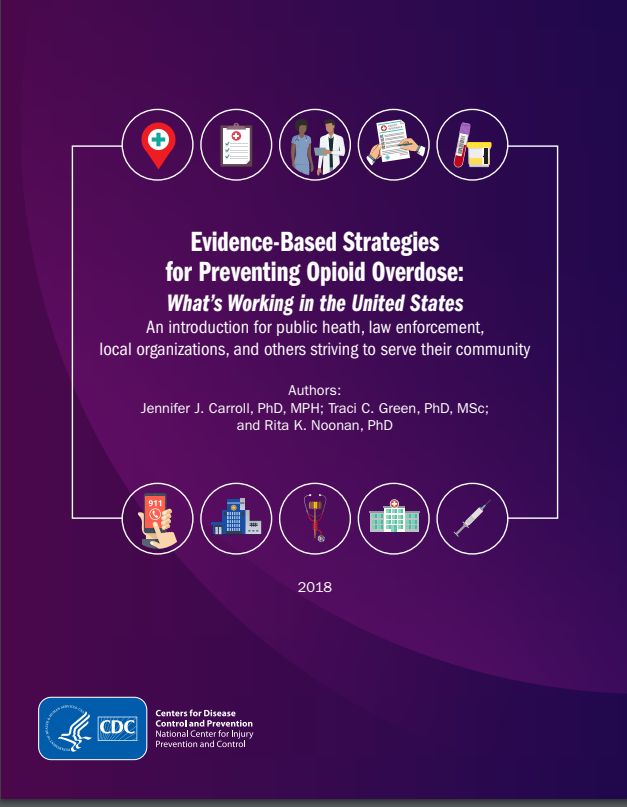BUILDING HEALTHY MILITARY COMMUNITIES TOOLKIT
A RESOURCE FOR THE DEPARTMENT OF DEFENSE HEALTH PROVIDERS AND COMMUNITIES
Policies to Help Service Members and Their Families Prevent Substance Misuse
This section outlines actions to take in collaboration with state and local public health and community organizations to establish more supportive environments for Service members to find and receive help.
Prescription Drug Misuse Evidence Based Prevention and Control Practices
Many states are currently addressing opioid use in response to the opioid crisis. CDC published a document that outlines and describes evidence-based strategies to assist community leaders, local and regional organizers, non-profit groups, law enforcement, public health, and members of the public in understanding and navigating effective strategies to prevent opioid overdose in their communities.
Alcohol-Related Disease Impact (ARDI) Application
Not all states are working on curbing excessive alcohol consumption. To help states understand the burden of excessive alcohol use, CDC maintains the Alcohol-Related Disease Impact (ARDI) Application. This tool provides state data on alcohol-related health impacts, including deaths and years of potential life lost.
Alcohol Misuse Evidence Based Prevention and Control Practices
For states that want to take action, the Community Preventative Services Task Force provides a list of evidence-based recommended strategies (noted by the green circles). Strategies include maintaining limits on days/hours of sale, regulating the number and concentration of places that sell alcohol in a geographic area, and more.
What you can do:
- Encourage community partners and state and local public health departments to use the data in CDC’s Alcohol-Related Disease Impact (ARDI) Application to learn more about how excessive alcohol use impacts their state’s health.
- Help them understand and measure binge drinking and related harms.
- Ask SHIP/CHIP planning committees to support proven strategies to reduce excessive alcohol consumption in communities with high populations of Service members.
- Ask SHIP/CHIP planning committees to adopt strategies to implement one or more of the evidence-based strategies to prevent opioid overdoses in the community.

